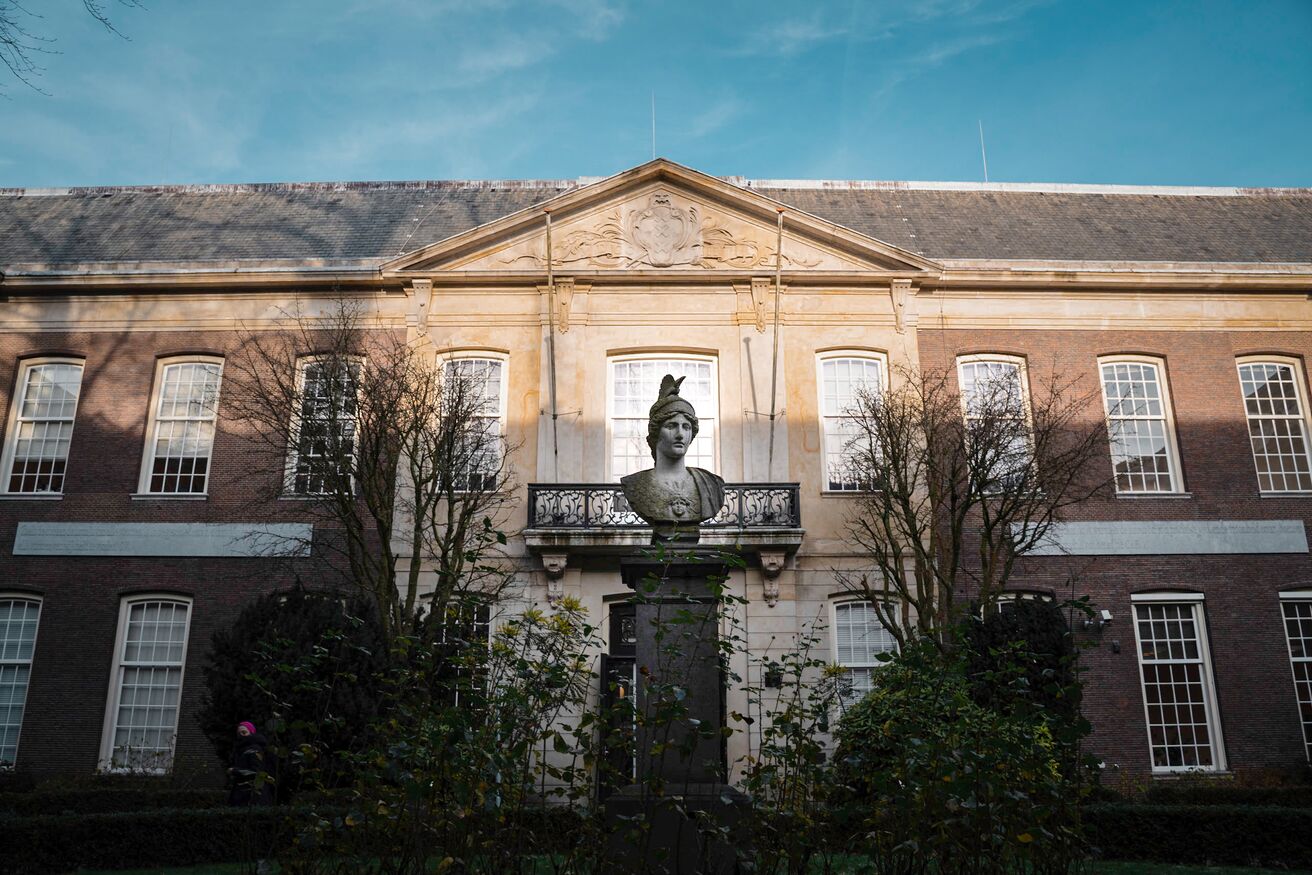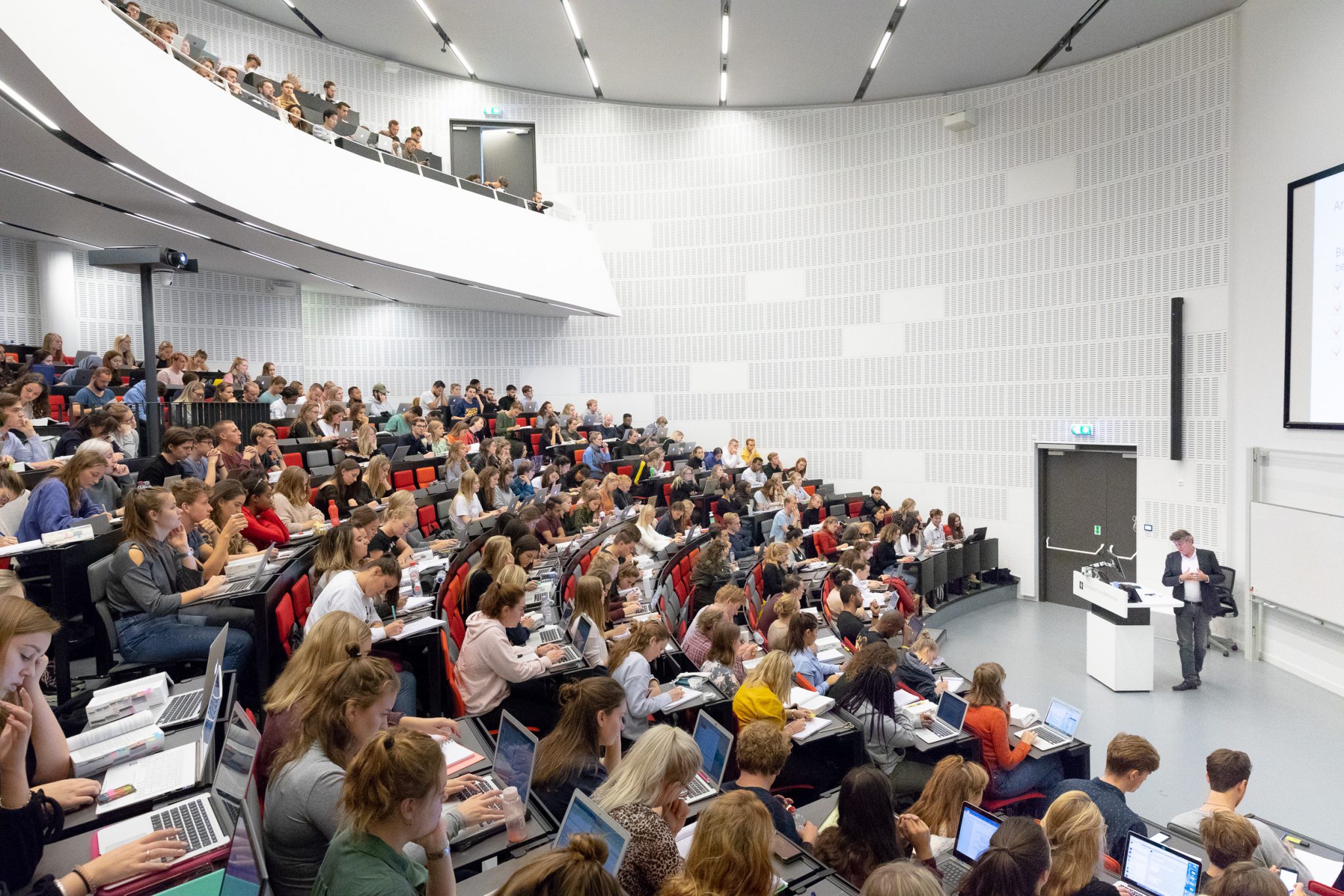
Senior Teaching Qualification (STQ)
The Senior Qualifying Education (STQ) program is aimed at teachers, assistant-professors, associate professors and full professors who design, innovate and ensure quality education at the curriculum level. The goal is to support lecturers in guiding the process of curriculum development.
The UTQ (BKO in Dutch) is an entry requirement for participation.
What is the STQ programme?
The Senior Teaching Qualification (STQ) is a program focused on curriculum improvement that you implement at your own program or faculty. During the program, you focus on how to lead this process and how to theoretically ground the improvement. The STQ program serves both the participant and the program in further professional development and thus aims to boost the quality of academic education.
Roles
It is assumed that the lecturer plays various roles at the level of the programme of study right from the start of the STQ programme:
- study programme of study developer
- supervisor of (junior) lecturers
- organizer of programme components and modernization
- connector between employees and departments, and
- visionary in terms of quality improvement and assurance, with substantial educational knowledge
In short
| For whom? | On nomination of the faculty board: teachers, assistant-professors, associate professors and full professors who design, innovate and ensure quality education at the curriculum level | |
| Time investment | 160 hours: 70 hours of contact time (six training days and coaching) and 90 hours for assignments, peer groups and the project within one’s own faculty | |
| Dates | The program is always offered in Dutch and English.
|
|
| Group size | Maximum of 14 per group | |
| Contact | Contact TLC (via email) |
How?
Participants come to the STQ programme with their own project and individual learning objective, apply the content of the programme directly and are supervised extensively on the basis of the four phases of the SIE model (Systemic Innovation in Education) of Brouwer and In ‘t Veld (2018). During the programme and in the peer consultations, lecturers work on their own project; the individual learning objectives are addressed primarily by means of personal coaching.
The programme is guided by two trainers (from the TLC central), who will guide you personally.
See SIE-model (Brouwer & In ‘t Veld, 2018)
For whom?
The programme is targeted at assistant professors, associate professors, and Full Professors who stand out within the study programme through their commitment and dedication to teaching. In their endeavours, they look beyond their own courses and field, leading transdisciplinary projects or modernization of teaching, and are able to involve colleagues in new developments. These lecturers work together with colleagues to innovate university education, which they ensure is anchored in the degree programme so that the final attainment levels in the degree programme are achieved.
They hold various roles in a study programme.
Some examples:
- director of Education or Director of Studies
- coordinator of a larger coherent part of educational components, such as a year or track
- coordinator
- member or chairperson of a programme committee and committee of a programme of study
- chairperson of an assessment committee
About the programme
In 2013, the University of Amsterdam began to develop and introduce the Senior Teaching Qualification (STQ) under the supervision of the Board of the Educational Leadership (Programmabestuur Onderwijskundig Leiderschap (POL) in Dutch) course at the University of Amsterdam. The first projects involved certification processes. September 2016 saw the launch of the first development tracks for researchers – assistant professors, associate professors, and Full Professors – within the University of Amsterdam.
During the STQ programme, which runs over one academic year, participants receive intensive guidance on completing the project and working on their individual learning objective. The programme consists of the following:
| Individual intake interview | To assess to what extent the candidate meets the requirements; to what extent the candidate’s expectations correspond with the objectives of the programme; and whether the candidate has sufficient time to complete the programme. | |
| Three individual coaching sessions | Time and attention for the candidate’s individual learning objective and the progress of his/her project. | |
| Six programme days | To further develop different roles with the help of guest speakers, assignments and exercises. | |
| Four peer consultations | To work on assignments in their own programmes, in groups of four. | |
| Interim assignments | Focusing on 360-degree feedback, vision development, project implementation, curriculum analysis, network reinforcement and portfolio development. | |
| Final assessment | To assess the candidate on STQ final attainment levels on the basis of their STQ file and an assessment interview with an STQ assessment committee. | |
| Celebratory conclusion | To celebrate colleagues and participants in the programme and to show how the STQ programme has benefited them as well as their degree programme. |
STQ-assessment
During the program, the candidate compiles an SKO file based on various interim assignments. Candidates receive feedback and coaching on these assignments from the supervisors. At the end of the program the candidate submits his SKO file to the SKO assessment committee for evaluation. For each candidate, the assessment committee consists of two assessors:
- an educational expert (an SKO program supervisor);
- a former SKO participant or an appropriate person from the network of assessors (including education directors, education portfolio holders, education program directors, etc.).
NominationThe dean nominates participant(s) (on the advice of education directors and/or program directors).
After nomination, the candidate submits his/her CV and a completed questionnaire. In the questionnaire the candidate indicates his/her preference for the Dutch or English-language variant of the UvA SKO.
The Teaching & Learning Center (TLC) collects nominations from each faculty.
There is then an admission procedure. This includes an intake interview with the SKO trainers, followed by a nomination by the SKO trainers to the Educational Leadership Program Board (POL).
The Program Board (POL) decides on final admission based on the number of applications, suitability of the candidate and interfaculty composition of the groups. |
Before participationAs a participant, you must meet the following:
|
Participants will benefit from:
- support in and in-depth study of teaching
- individual coaching and supervision in relation to developing and implementing their project
- individual coaching and supervision in relation to their own individual learning objective
- discussion with and feedback from a selected group of peers from various faculties
- assignments that help them to develop and for the STQ portfolio
- feedback on the portfolio
- personal final assessment
- if the programme is successfully completed: the Senior Teaching Qualification (STQ) certificate
The degree programme/department gain certified employees who are able to perform at the programme of study level within the degree programme:
- with a proven, extremely well-founded vision for the programme of study, related to the final attainment levels of the degree programme,
- who, in terms of educational innovation and quality assurance, act in a way that is substantiated by educational practice,
- as part of which they can collaborate effectively and inspire, motivate, and galvanize colleagues,
- and are the point of contact in implementing and assuring teaching quality and improvement,
- with an interfaculty network of colleagues within the university, all of whom operate in a programme of study.
The University Teaching Qualification (UTQ), Senior Teaching Qualification (STQ) and the Leergang Onderwijskundig Leiderschap (LOL) are aimed at course level, curriculum level and program (cross-curricular) level, respectively.
UTQ
The University Teaching Qualification provides an initial qualification for all lecturers. The UTQ certificate demonstrates the ability to carry out the required education (forms of work) and to develop course activities (from learning activities to tests), based on educational principles.
STQ
The STQ demonstrates educational excellence at the curriculum level. The STQ certificate has developed sufficient educational knowledge and experience to ensure quality implementation of changes within the program. The STQ is reserved for employees who occupy a key position at curriculum level from which they guarantee the quality of education and/or improve it in innovative ways. Thus, it is not automatic that UTQ-certified lecturers advance to STQ lecturer. Advancement to STQ level depends on the tasks and roles the lecturer assumes.
LOL (programme in Dutch)
Following that, the Leergang Onderwijskundig Leiderschap (LOL) is intended for UvA staff who are in a position to exert influence at the faculty level. This means that they have responsibility for a program or a larger entity within a faculty. Specifically, these are program directors, education portfolio holders, department heads or faculty who may be moving toward such a position. The course builds on the Senior Teaching Qualification (STQ). This qualification or demonstrable functioning at STQ level is therefore one of the admission requirements for the track.
Contact
Have a question or comment about the STQ program? Please contact us.









